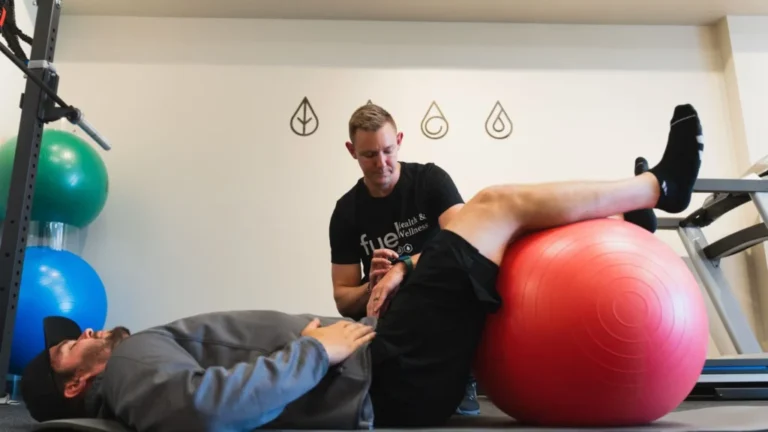Navigating Relationships with Crohn’s Disease

Living with Crohn’s Disease comes with a unique set of challenges, but one of the most delicate aspects is managing your personal relationships. Whether it’s sharing your diagnosis, seeking support, or maintaining open communication, relationships can serve as a foundation for coping with the condition. The way you approach these conversations can impact both your emotional well-being and how effectively you manage your health.
How Do You Share Your Crohn’s Disease Diagnosis?
Sharing your Crohn’s Disease diagnosis with loved ones can feel daunting. It’s not just about explaining a medical condition; it’s about being vulnerable and trusting others with something deeply personal. Here are some tips to ease the process:
- Choose the Right Time and Place: Pick a calm, private setting when you have enough time to talk without interruptions. Avoid sharing your diagnosis in emotionally charged or stressful circumstances.
- Be Honest, Yet Concise: You don’t need to go into every detail right away. Start with a simple explanation of what Crohn’s Disease is and how it affects you. Focus on the aspects relevant to your relationship, like how flare-ups might impact your social life or daily routines.
- Share How They Can Help: Be clear about what kind of support you may need, whether it’s flexibility, understanding, or assistance during tough days.
- Use Resources: It can be helpful to share educational materials, like brochures or websites from trusted sources, to help others better understand Crohn’s Disease.
This conversation might feel intimidating, but remember that sharing your diagnosis is one step in fostering understanding and support.
What Support Can Partners Offer?
Whether it’s a romantic partner or a close friend, support from those around you can make a world of difference when managing Crohn’s Disease. Partners often want to help but may not know how. Here’s what they can do:
- Understand the Condition: Encourage them to learn about Crohn’s Disease and its symptoms, so they have a better understanding of what you’re going through.
- Be Patient During Flare-Ups: Flare-ups can be unpredictable. Having a partner who remains patient and supportive during these episodes can alleviate stress and help you recover faster.
- Provide Practical Help: Partners can offer to help with tasks that may feel overwhelming during a flare-up, such as preparing meals, running errands, or attending doctor’s appointments with you.
- Offer Emotional Support: Sometimes, simply listening or being there to provide comfort is all the help you need.
- Respect Boundaries: While support is valuable, respecting your independence and boundaries is equally valuable. Balance is key.
By being informed, patient, and proactive, partners can play a valuable role in helping you manage your condition and maintain a sense of normalcy.
Is Communication Key to Coping?
Good communication is the backbone of any solid relationship, and this becomes even more significant when living with a chronic illness like Crohn’s Disease. Open and transparent communication fosters trust, reduces misunderstandings, and allows both you and your loved ones to be on the same page. Be clear about your needs. If you’re having a bad day due to fatigue, pain, or discomfort, don’t feel pressured to “soldier through.” Politely explain how you’re feeling and what support you might need in that moment.
Encouraging questions is also helpful. Invite your loved ones to ask about Crohn’s Disease and how it affects you. This openness not only facilitates better dialogue but also helps them gain a deeper understanding of your experience.
Set clear expectations, especially if your condition prevents you from attending events or fulfilling commitments. Being upfront about your limitations can reduce the chance of disappointment or frustration. Express gratitude to those who support and care for you. Acknowledging their efforts fosters positivity and strengthens your relationships. Strong communication isn’t just helpful for managing Crohn’s Disease; it can also bring you closer to the people who matter most in your life.
Consult a Specialist
Living with Crohn’s Disease can be challenging, but you don’t need to face it alone. Whether it’s sharing your diagnosis, seeking support, or fostering open communication, your relationships can be a source of encouragement and strength. Remember, being honest about your condition and your needs is the foundation of any healthy relationship. Reach out to a specialist today.
- What to Expect When Visiting a Foot and Ankle Specialist
- Causes of PTSD
- The Link Between Plantar Fasciitis and Weight Gain: What You Need to Know
- How Pet Ownership Can Positively Impact Life with Fibromyalgia
- The Importance of Stretching and Flexibility in Sports Medicine
Dr. Emma Green is a health and wellness expert with over 10 years of experience in nutrition and fitness. Passionate about helping others live their healthiest lives, Dr. Green shares practical advice on wellness, nutrition, and sustainable living through LivingSpristine.






